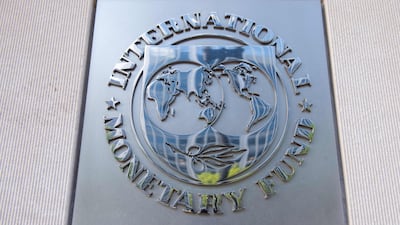Gains from sharp currency declines in some emerging market and developing economies (EMDE) will be limited as most transactions are billed in currencies such as the US dollar, the International Monetary Fund said.
Companies in these markets price their international sales and finance themselves in a few dominant currencies, which "alters how trade flows respond to exchange rates", three senior IMF officials said in a joint blog post.
“Our analysis on dominant currencies suggests that the weakening of EMDE's currencies is unlikely to provide a material boost to their economies in the short term as the response of most exports will be muted, besides the physical disruptions to trade from supply and demand disruptions,” research department deputy division chief Gustavo Adler, chief economist Gita Gopinath and economist Carolina Osorio-Buitron wrote.
"Key sectors that would normally respond more to exchange rates – [such as] tourism – are likely to be impaired by Covid[-19]-related containment measures and consumer behaviour changes."
The officials said exchange rates could help contain capital outflow pressures and support a recovery over the medium term.
However, sustaining the domestic economy in the short term requires “decisive use of other policy levers, such as fiscal and monetary stimuli, including through unconventional tools”.
EMDE currencies have registered sharp declines in recent months due to a collapse in global demand and commodity prices, capital outflows, supply chain disruptions and falling trade volumes.
However, there is growing evidence that most global trade is billed in a few currencies, mainly the US dollar.
The share of US dollar trade invoicing across countries far exceeds the volume of trade with the US itself.
This is especially true with EMDEs, which, given their growing role in international trade, are increasingly relevant for the international monetary system.
“When export prices are set in US dollars or euros, a country’s [currency] depreciation does not make goods and services cheaper for foreign buyers, at least in the short term, creating little incentive to increase demand,” the fund's executives said.
“In EMDEs, where dominant currency pricing is more common, the reaction of export quantities to the exchange rate is more muted and so is the short-term boost of a depreciation [of the currency] to the domestic economy.”
The strengthening of the US dollar has short-term contractionary effects on trade, as the weakening of other currencies against the greenback leads to higher domestic currency prices of imports from other countries other than the US, resulting in lower demand.
The prevalence of the US dollar in funding businesses within EMDE markets means that exchange rate fluctuations can also affect the balance sheets of companies in these economies.
A depreciation that increases the value of a company's liabilities relative to its domestic revenue weakens its balance sheet and hinders access to new financing, the three officials said.


